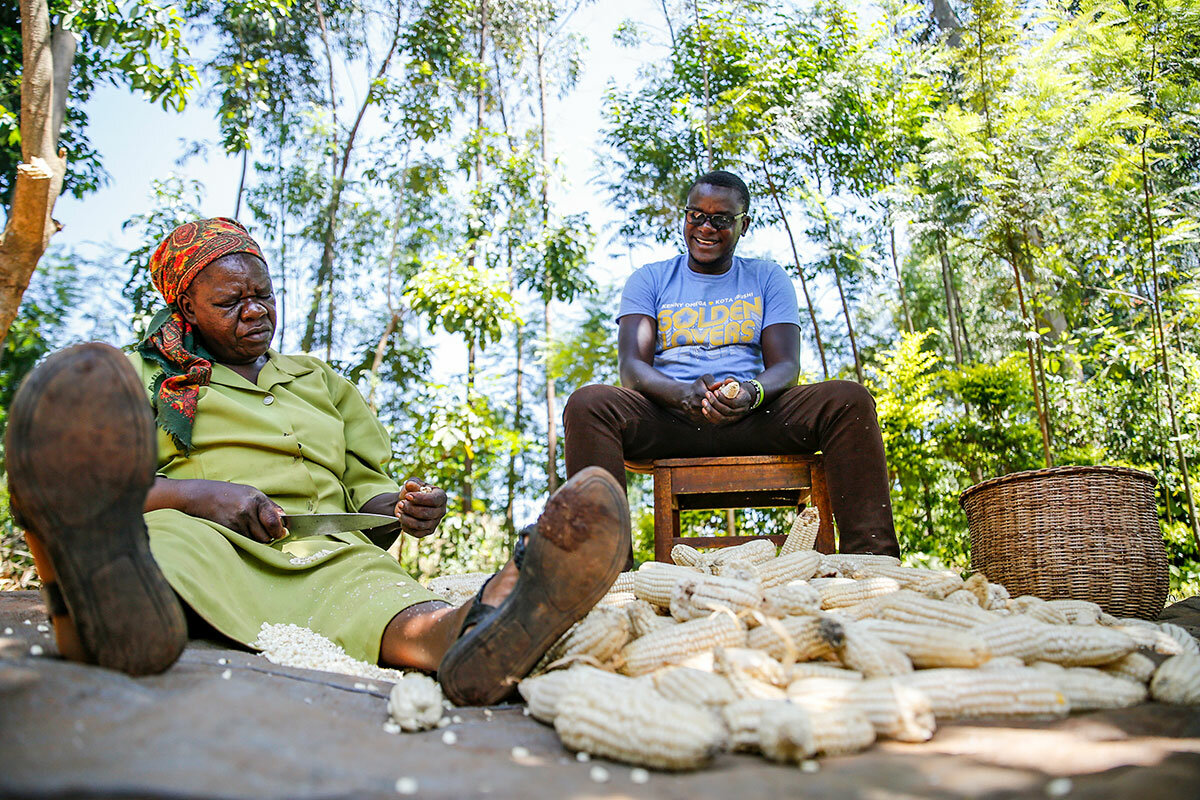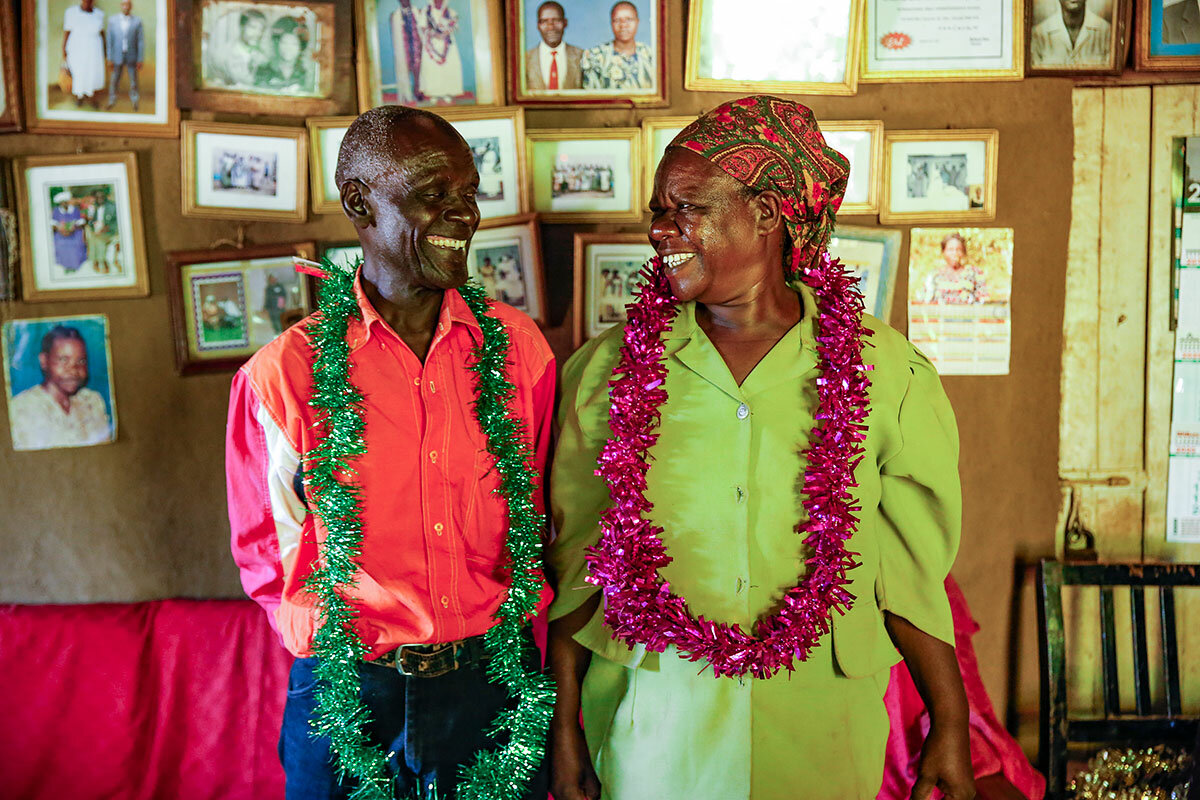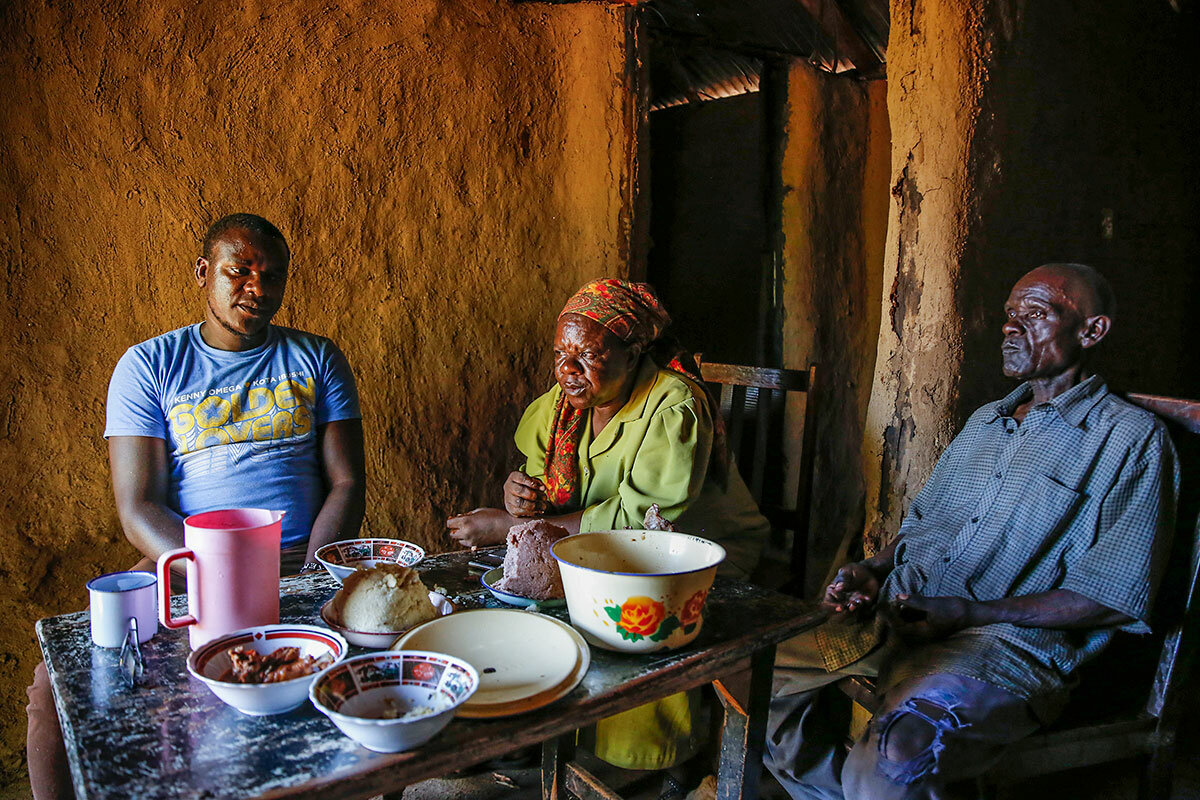‘The sky doesn’t collapse.’ A filmmaker explores gay life in Kenya.
Loading...
“This is Alex. I am Sammy,” announces the title character in the opening scene of “I Am Samuel,” as the two men amble around a waterfall. “Alex is the love of my life.”
In many ways, Kenya, where Peter Murimi’s documentary takes place, is an extraordinarily difficult place to be queer. In 2019, the country’s high court upheld a colonial-era legal prohibition on homosexuality, which makes “carnal knowledge against the order of nature” punishable by up to 14 years in jail.
But “I Am Samuel” isn’t about that.
Why We Wrote This
A film is a window into another culture, and its subjects can speak for a deeper humanity amid a repressive social and legal framework.
It is, instead, an intimate portrait of a couple merging their lives. We see them washing dishes together after a party, teasing each other as they bake bread while visiting Sammy’s parents’ rural home, and slipping rings onto the other’s finger in a living room commitment ceremony. While the film doesn’t shy away from the fear and violence that are regular features of LGBTQ life in Kenya, its granular portrayal of one couple seems to make the case that here, like anywhere, life isn’t black and white.
“I Am Samuel” has screened at over 25 film festivals worldwide, and is available to stream on international platforms like iTunes and Vimeo. But in Kenya itself, it has been banned for promoting homosexuality.
The Monitor spoke to Mr. Murimi about the making of the film, and reception to it in and outside Kenya.
How did you choose Sammy as a subject?
When I first decided I was going to make a film, I wanted it to be intimate, so I wanted to find one person and tell the story through them. In Kenyan society we have a properly entrenched class system, which is a hangover from British colonialism. And what has happened especially in the queer community, the stories you hear are most often about middle class to wealthy Kenyans. Wealth buys you some security [making it often easier to come out].
But most people in Kenya are poorer than the middle class. That means the majority of queer Kenyan men and women are poor. But that more mainstream story has rarely been told. So I also wanted my film to be a more representative story in that sense, because it’s more true to what’s happening.
I met Samuel through a mutual friend. And he was interested almost from day one. He had his own motivations for being involved. He comes from the countryside, and he worked in Nairobi on a construction site. And he told me when he was growing up and coming to terms with who he was, he had not one grown person in his life or community who he knew was queer. That made him really depressed. He almost took his life. So he wanted to make this film for people who come from the village, like him, so that those people know they are not alone.
The film is extremely intimate. A lot of it is filmed inside people’s houses, at parties and family gatherings. You spent a great deal of time with Sammy, and then later with Sammy and Alex. You went with him to visit his family both before and just after he came out to them, which happened during the period you were following him. How did you get this kind of access?
The short answer is that it takes a very long time for people to get used to you and be natural and just forget you’re there. So I filmed this over five years. I have five years of footage. But I would say it took a couple years for people to become comfortable with me. And it was a conversation we negotiated over and over with Samuel’s friends, his parents, and with Alex when Alex came into his life.
Kenya’s film board banned the film, saying it violates laws criminalizing homosexuality. They called it “a clear and deliberate attempt to promote same-sex marriage as an acceptable way of life.” What did you think of that?
We always knew this was a possibility, because the film board has banned films like this before, notably two recent feature films, “Rafiki” and “Stories of Our Lives.” So it would have been naive for us to think we were just going to get a smooth ride. But what was different about “I Am Samuel” was that it was a documentary. So it wasn’t us creating a story, but reflecting real life that just does exist. So we hoped they might at least engage with us, and the ban was very disappointing.
And for Samuel, it was a hundred times worse. The whole point of him participating was [for] people like him to see him on screen. Now he’s being told again that his story doesn’t matter, and having his existence squashed out of existence. That’s extremely painful.
Is there anything you can do about it?
When “Rafiki” was banned, the filmmakers went to court. But basically how the law is written now, the film board has all the power to ban or not ban a film. [The ban on “Rafiki” was upheld.] So even going to court we feel would be a waste of resources, because actually it’s the law that’s bad. Previous regimes were using it for political censorship. Now it’s being weaponized for LGBT censorship.
So what we really have to do is we have to fight for the law to change. And we will start with the court of public opinion. Right now, our film is being shown now for free all over Africa, except Kenya. We’re trying to show people, when this film is shown in African countries, the sky doesn’t collapse.
How do Sammy and Alex feel about the film?
They’re really happy. For a long time they’ve never been validated. They’ve been told they’re inferior. So having their story out there makes it much more real for them. In that sense they have a lot of satisfaction. For Samuel it was a very interesting way of coming out to the wider society, because there was all this stuff happening in his family, but many of his colleagues and neighbors didn’t know he was queer. So for him this was really liberating.
What do you hope your viewers take away from this film?
I’m hoping this film shows the world another vision of love and resilience. Besides the difficulties and obstacles of being queer in Kenya, or in sub-Saharan Africa, Samuel and his friends find pockets of real happiness. It isn’t all doom and gloom. There’s also a lot that’s positive in their lives, and I want people to see that side of things too.








